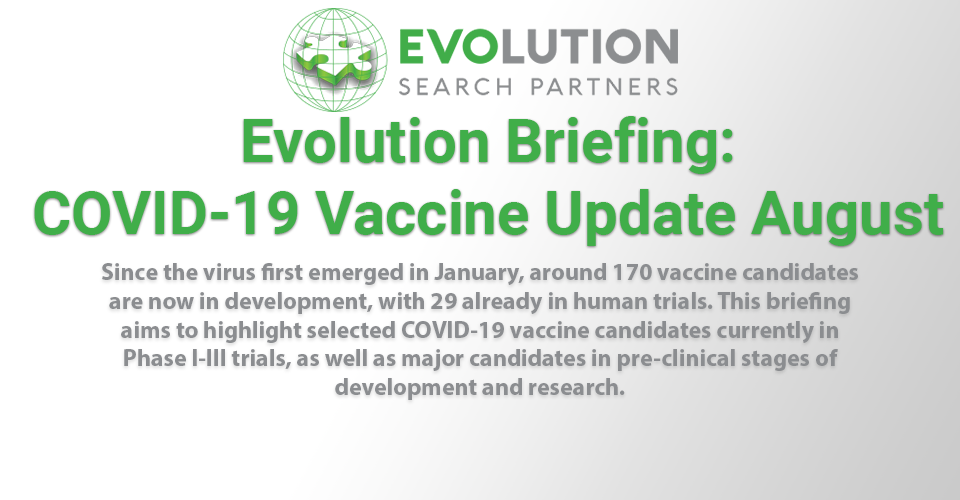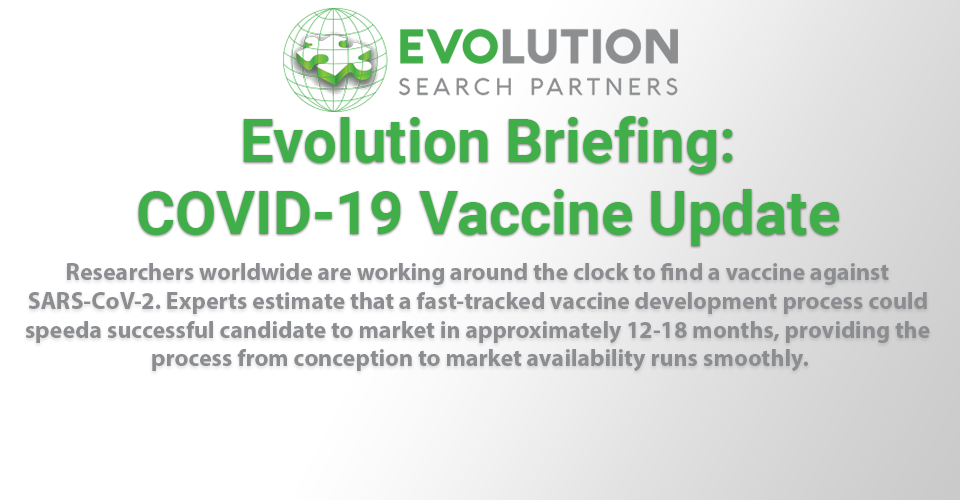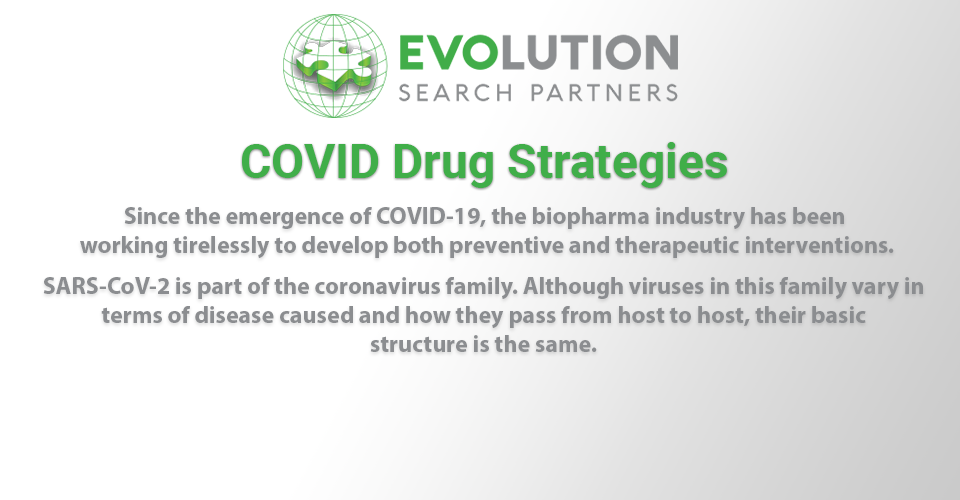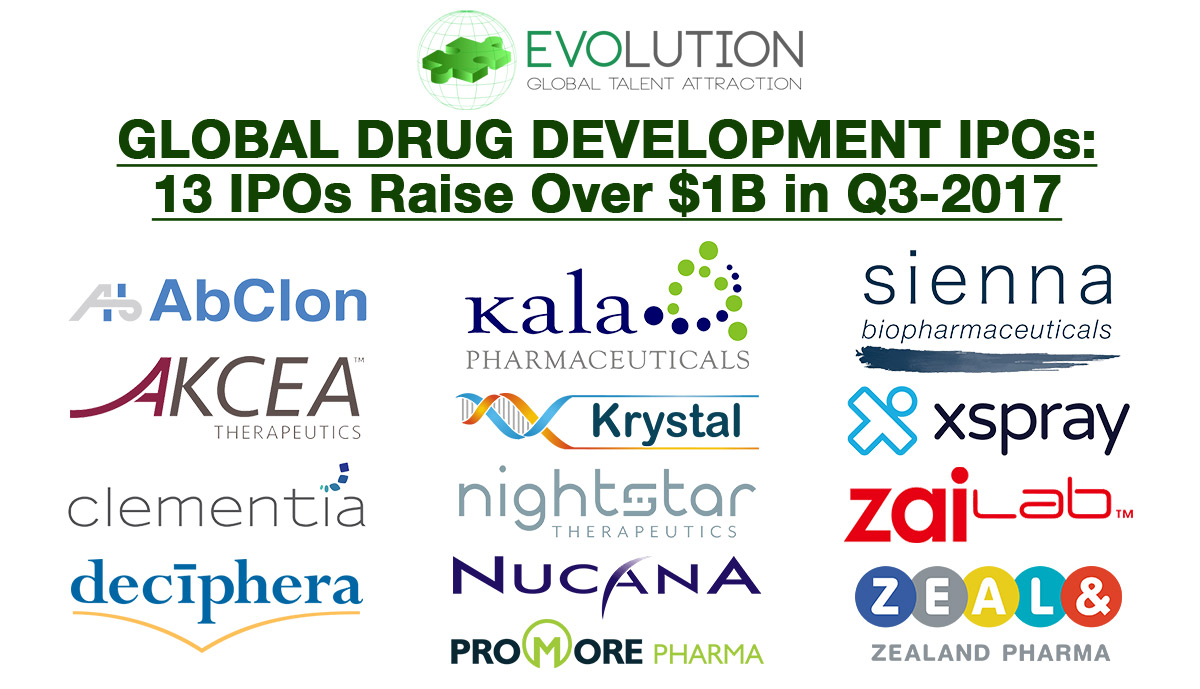
2017 Global Therapeutic IPO Market: 121% YOY Increase in Funds Raised Despite Slow Q3
October 5, 2017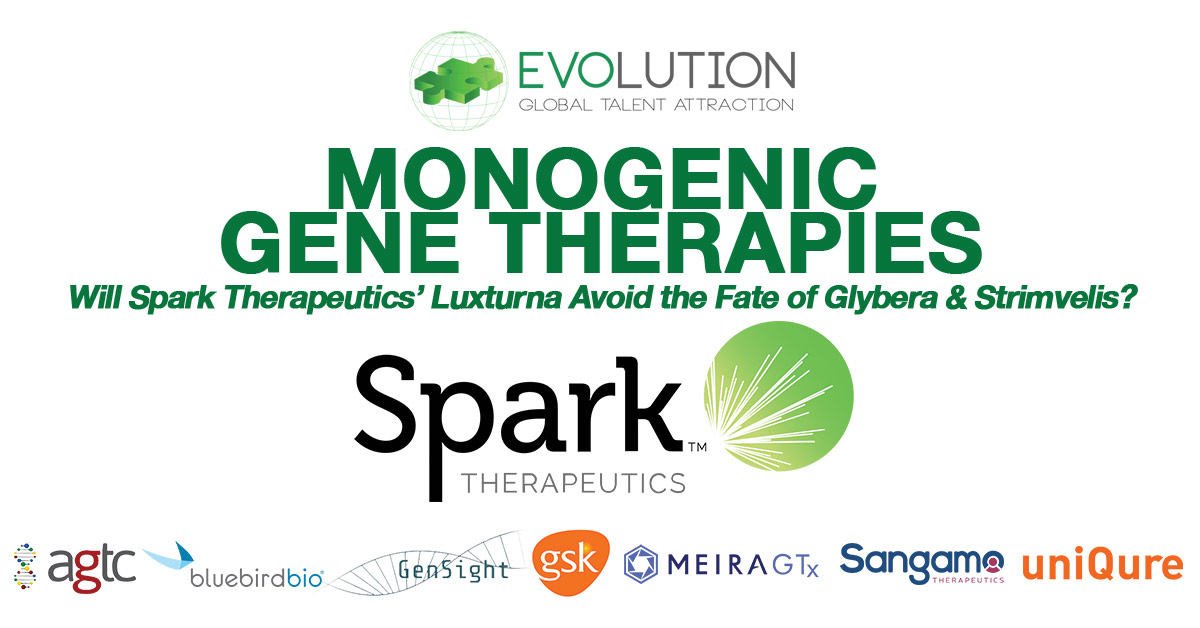
Monogenic Gene Therapies: Will Spark Therapeutics’ Luxturna Avoid the Fate of Glybera & Strimvelis?
October 24, 2017[vc_row][vc_column][vc_column_text]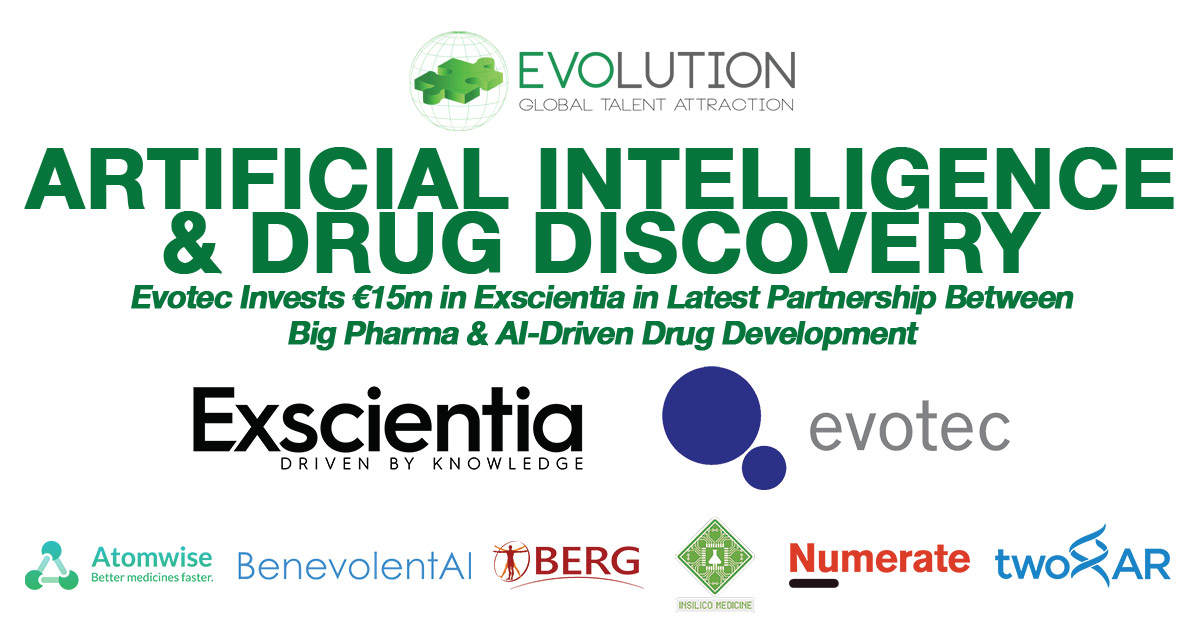
German pharmaceutical company Evotec has expanded its partnership with Scottish artificial intelligence drug design pioneers Exscientia, investing a further €15m in exchange for a minority stake in the company. The deal highlights the ongoing trend of big pharma collaborations with AI companies, as drug developers seek to cut down the time and cost of preclinical development. Exscientia has previously partnered or collaborated with Sanofi, GSK and Sunovion Pharma, however Evotec’s investment makes the German company the first international stakeholder in the Dundee-based AI company.
Artificial intelligence is rapidly becoming a valuable tool in drug discovery and development, saving time and cost, and improving efficiency in the process. The aim is to combine data analysis with drug design by using machine learning to predict how molecules will react, thereby avoiding possible late-stage toxic side effects of a new drug. Fundamental issues in pharmaceutical discovery include extensive development times of up to 15 years, and high failure rates caused by late-stage toxicity, each contributing to the high costs of development. Pre-screening and identifying suitable molecules can also be extremely time-consuming. These issues are driving the market towards a more efficient and cost-effective method of development, potentially saving the pharmaceutical industry millions of dollars.
The capabilities of AI can also be used to take advantage of the availability of patient data. As biological samples are analysed in a clinical lab, computers can be used to examine large amounts of existing genetic information to identify possible disease predisposition and therapeutic response. In turn, this can be used to recruit suitable patients for clinical trials according to the likelihood of successful treatment.
Exploring Big Pharma’s Investment into AI Drug Discovery
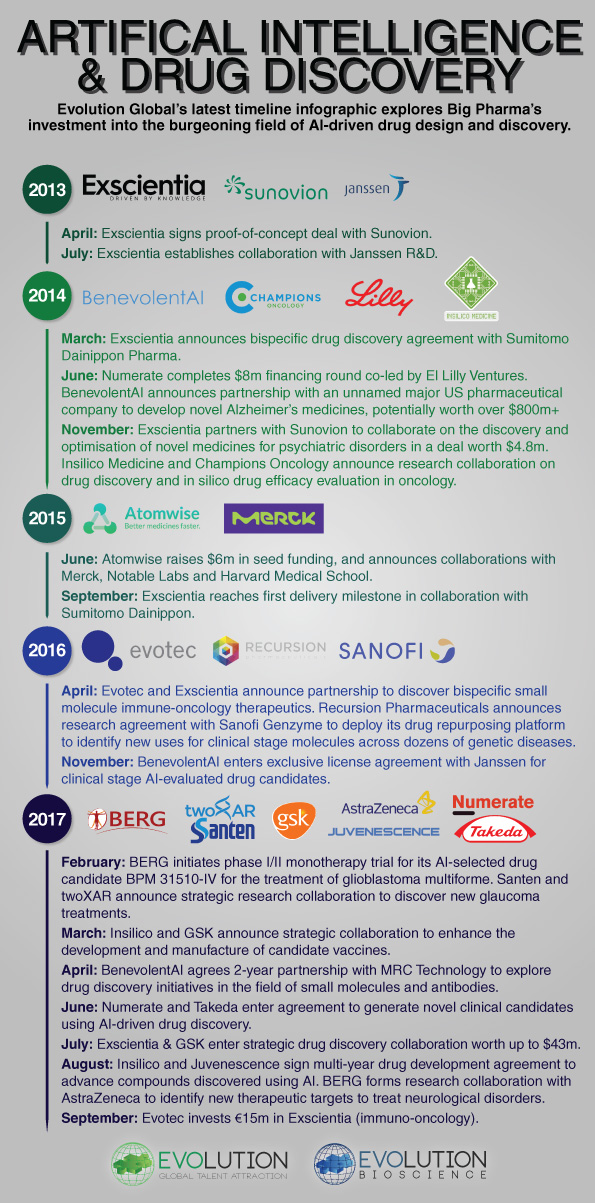
Other companies are also involved in exploiting the powers of AI in early drug discovery. Atomwise, based in San Francisco, recently raised $6m in funding with the goal of treating neurological diseases and certain forms of cancer. Berg Health, based in Boston, is also using AI to analyse patient clinical trial data in order to develop new cancer treatments. InSilico Medicine, another company with an AI focus, has formed a drug discovery partnership with Juvenescence AI to target age-related diseases. Benevolent AI, a company with a focus on neurodegenerative disorders, uses an algorithm to analyse literature and patient data to design new molecules. Benevolent AI already has a clinical trial taking place this year for a drug treating excessive sleepiness in Parkinson’s disease patients.
There are several instances of larger pharmaceutical companies investing in AI drug discovery companies. Berg, InSilico Medicine, and Atomwise are also involved in the use of AI within drug discovery, and have received investment from AstraZeneca, GSK, and Merck, respectively. Pfizer is involved in a collaboration with IBM Watson for Drug Discovery, which analyses clinical data at a speed beyond what is manually possible, in an effort to improve cancer therapy. If successful, AI-driven drug development would promise faster, cheaper development times, ultimately leading to more efficient treatments for patients.
Limitations of AI-Driven Drug Discovery
“It is important, however, not to overstate the potential,” notes Evolution Director Dr. Frank Rinaldi. “AI approaches to drug discovery rely heavily upon accessible high-quality data. Data of this nature as it relates to toxicology is readily available via access to late stage failures and adverse events post-launch. Conversely, efficacy prediction may well be a challenge for some time to come.”
“Part of the AI approach often relies upon accessing and interrogating biomedical research literature to understand targets, disease models and other research endeavours of importance. Given that it was reported in Nature last year that 70% of researchers have tried and failed to reproduce another scientist’s experiments, and more than half have failed to reproduce their own experiments, there is a clear concern as to the quality of such literature. Additionally, the continuing debate about research grade antibody quality, a key tool used in disease biology research is one that still not been rectified.”
Conclusions
This would suggest that, at least for the foreseeable future, one would have to view AI analysis for the most efficacious compound as a speculative approach. Whilst AI-driven drug discovery remains in its infancy, big pharma investment into start-ups exploring the potential of AI shows no signs of abating. Considering that the average development time for a new drug is upwards of 12-15 years at an estimated cost of $2.5B, one can understand big pharma’s motivations for improving the efficiency of the drug development process.[/vc_column_text][dfd_spacer screen_wide_resolution=”1280″ screen_wide_spacer_size=”20″ screen_normal_resolution=”1024″ screen_tablet_resolution=”800″ screen_mobile_resolution=”480″ screen_normal_spacer_size=”19″ screen_tablet_spacer_size=”7″ screen_mobile_spacer_size=”5″][/vc_column][/vc_row][vc_row][vc_column][vc_row_inner][vc_column_inner][vc_column_text]
You can download a full PDF copy of our Artificial Intelligence Drug Discovery timeline infographic via the button below:
[/vc_column_text][/vc_column_inner][/vc_row_inner][vc_row_inner][vc_column_inner width=”1/3″][/vc_column_inner][vc_column_inner width=”1/3″][vc_column_text] Download “Artificial Intelligence & Drug Development: A Timeline Infographic by Evolution Global” Evolution-Infographic-Big-Pharma-Investment-into-AI-Driven-Drug-Discovery.pdf – Downloaded 1277 times – 676.99 KB [/vc_column_text][/vc_column_inner][vc_column_inner width=”1/3″][/vc_column_inner][/vc_row_inner][vc_row_inner][vc_column_inner][vc_column_text]
Follow Evolution Global on LinkedIN, Twitter & Facebook to keep up-to-date with news and trends from the biotechnology, biosciences, medical device, IT and Intellectual Property industries.
[/vc_column_text][/vc_column_inner][/vc_row_inner][/vc_column][/vc_row]

